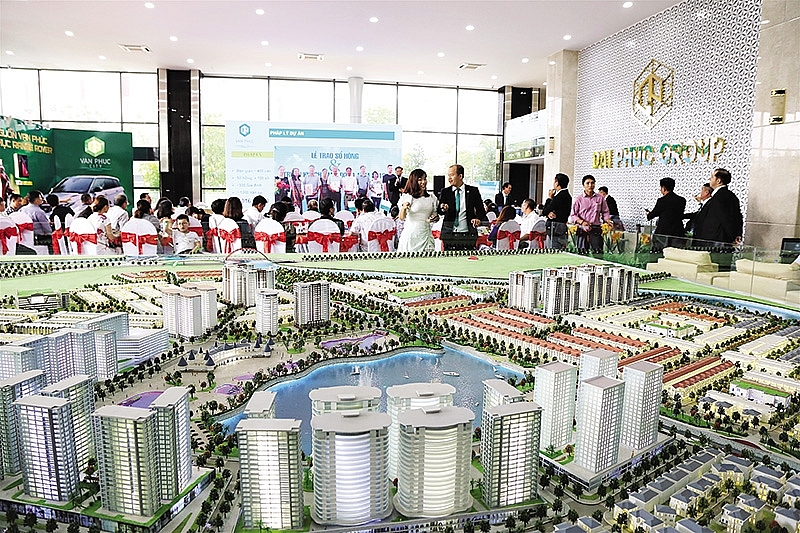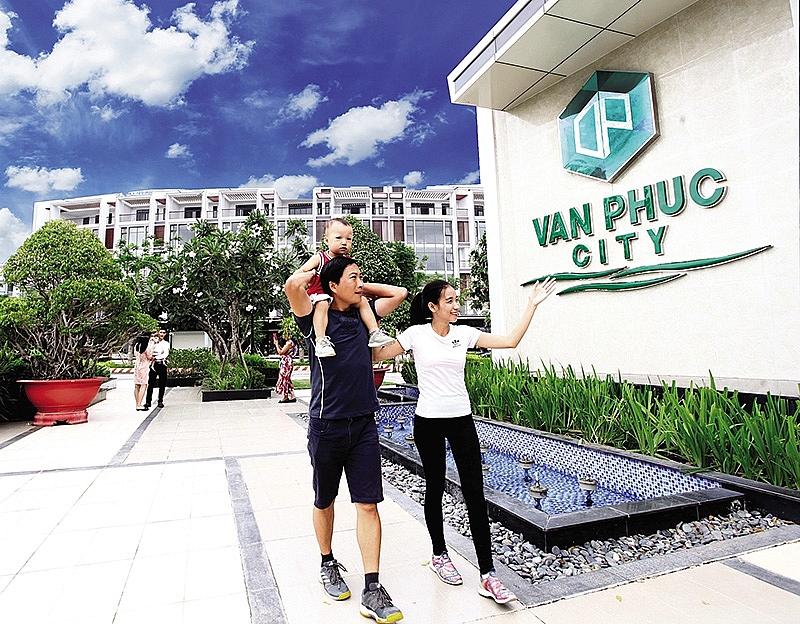Success by being true to one’s self
 |
| CEO Nguyen Huong is currently seeking partners for the Van Phuc City project |
Keep learning
 |
| Nguyen Huong has extensive experience in real estate |
Before venturing into real estate, Huong spent seven years on product development at Prudential Vietnam. This position required Huong to obtain a vast knowledge of the product development process, ensuring that the new product would be a success.
Huong switched to real estate in 2007, a few years before the market began to boom. The real estate market at the time was still very new, but Huong utilised her skills as a product developer to quickly differentiate herself from other realtors. This led to her early successes in the new business.
According to the CEO, real estate is unique in the sense that it has high value and everyone needs a place to live. Real estate does not only have value in the present, but also in the longer term. As a result, real estate developers must have a long-term vision and a passion to come up with products that can satisfy homeowners. This means giving house buyers a property that they can happily reside in and pass on to later generations. According to Huong, the Vietnamese real estate market is in its golden era of development and Vietnamese and overseas investors are excited about the long-term prospects of the sector.
“The most difficult aspect of product development is creating the right land bank,” said Huong, who counts herself lucky for having worked with leading partners from the US, Australia, and Japan as they were willing to splash out on major projects. This is a step towards ensuring the long-term sustainability of a project, and the CEO has learned great lessons from the foreign partners.
“Some remote areas seem impossible for development at first. However, passionate real estate developers have tackled this challenge and persevered in their quest to turn empty land into a great living space, improving the quality of life for residents. This is how I became excited about real estate – I love ‘breathing life’ into the land, which is a very fascinating challenge,” said Huong.
Huong lived in South America for four years to explore the global real estate market, which helped her grow personally, experience different cultures, and learn about various real estate trends.
The CEO travelled a great deal during those years, as she aspired to see how properties in different countries were preserved and developed. She came back a more culturally aware person, who looked forward to applying her knowledge to the Vietnamese real estate landscape.
 |
| Van Phuc City will be a highlight of northeast Ho Chi Minh City |
Dedication to quality
As CEO of Dai Phuc Land, Huong had a lot on her plate. For example, she is now responsible for developing a 198-hectare, $2 billion project named Van Phuc City. The soft-spoken CEO believes that dedication to service quality is vital for success, both in her personal life and career.
First, she said, a leader should have sufficient preparation for any possible scenario, which includes identifying problems and coming up with solutions. Huong said that she often takes a step back to think about long-term implications and her experience with the ups and downs of the real estate market has helped a lot with this.
Second, real estate developers must focus on the quality of their products. This will determine whether the company will survive or not.
“Dai Phuc Land is serious about all aspects of product quality, from landscaping and architecture to quality management, and always strives to improve customer service,” she said. “The goal is to provide not only a house, but a cosy home inspired by Vietnamese culture and international standards.”
Third, human resources are essential to success in any business. According to Huong, Dai Phuc Land employs highly qualified and loyal staff, who work hard to improve their skills every day. This allows the company to keep up with the latest market trends and deliver strong services to customers.
Regarding the current market situation, Huong said that if a project aims to serve real demand, it will definitely receive a warm response from the market. This means developers must have a clear vision from the start and pursue it with determination throughout each stage of the project.
Stiff competition is another factor, which Huong believes is indispensable for growth. Competition will force companies to constantly innovate, understand what consumers want, and develop a variety of products with different price points and added values. It is also important that competition must be fair and transparent.
“We compete by being our best selves and having our own differentiation points,” said Huong.
The next steps
The busy CEO has a lot in store for Dai Phuc Land. For example, the Van Phuc City project, located in northeast Ho Chi Minh City, is seeking partners from both Vietnam and overseas. Van Phuc City aspires to be a prime example of the metropolis’ urban development, answering demand for high-class accommodation, travel, commerce, entertainment, and services in Ho Chi Minh City. The project is surrounded by a 3.4-kilometre stretch of the scenic Saigon River, a 21-hectare lake, and a 2km section of Song Trang Canal, creating a cosy living environment for residents.
Van Phuc City is developed over several phases, and welcomes collaboration from both Vietnamese and foreign partners to provide urban facilities – including educational institutions, shopping malls, parks, and more.
Huong said that Van Phuc City looks for partners with a strong financial capacity and experience in developing large-scale urban areas, who can follow the timeline. In the third quarter of 2018, Van Phuc City will develop a school system based on the international EMASI standards, then a 300-bed hospital in the fourth quarter. According to Huong, the developer will ensure that social infrastructure will accompany the real estate project, offering residents a well-rounded living space.
Working towards this goal, Huong said the entire Dai Phuc Land will focus on delivering superior results, surpassing the expectations of customers and partners. To improve business results, managers should also create the best environment to foster the personal growth of their employees.
“This is how the entire company can stick together and move forward,” said Huong.
What the stars mean:
★ Poor ★ ★ Promising ★★★ Good ★★★★ Very good ★★★★★ Exceptional
 Tag:
Tag:
Related Contents
Latest News
More News
- Dong Nai experiences shifting expectations and new industrial cycle (January 28, 2026 | 09:00)
- An Phat 5 Industrial Park targets ESG-driven investors in Hai Phong (January 26, 2026 | 08:30)
- Decree opens incentives for green urban development (January 24, 2026 | 11:18)
- Public investment is reshaping real estate’s role in Vietnam (January 21, 2026 | 10:04)
- Ho Chi Minh City seeks investor to revive Binh Quoi–Thanh Da project (January 19, 2026 | 11:58)
- Sun Group launches construction of Rach Chiec sports complex (January 16, 2026 | 16:17)
- CEO Group breaks ground on first industrial park in Haiphong Free Trade Zone (January 15, 2026 | 15:47)
- BRIGHTPARK Entertainment Complex opens in Ninh Binh (January 12, 2026 | 14:27)
- Ho Chi Minh City's industrial parks top $5.3 billion investment in 2025 (January 06, 2026 | 08:38)
- Why Vietnam must build a global strategy for its construction industry (December 31, 2025 | 18:57)





















 Mobile Version
Mobile Version